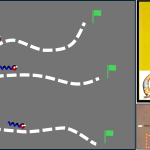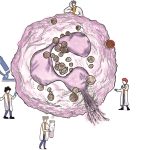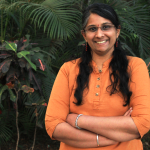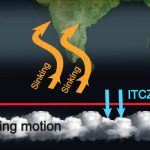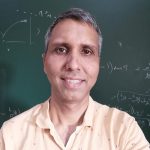Unique course supplements classroom teaching with fresh perspectives
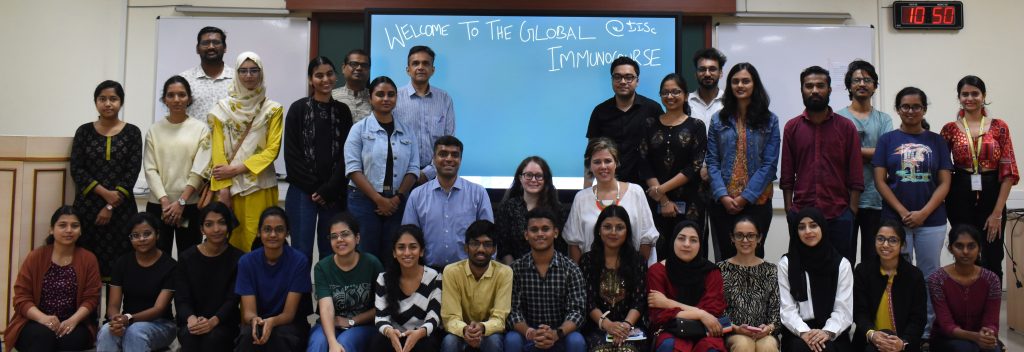
(Photo Courtesy: Siddharth Jhunjhunwala)
When Surjyapratap Sarangi, an MTech student in Biomedical Engineering from IIT Indore, signed up for the Global Immunocourse in December 2024, he was in for a surprise. He had expected a class focused on theory, but it turned out to be a more interactive and research-oriented class. The course delved deep into analysing immunology papers and having guided discussions on some classical papers that had shaped basic concepts in the field. “Though there were several new concepts, I now got a flavour for the philosophy of immunology. I am exploring different concepts that have interested me,” he says.
The class that he attended was part of the second edition of the Global Immunocourse held in India. The first was held in IISc in December 2023, and the second was held at Ashoka University in December 2024.
The roots of the course have an IISc connection. Carla Rothlin, Professor of Immunobiology and Pharmacology, Yale School of Medicine, USA, designed the course as a Satish Dhawan Visiting Faculty at the Department of Bioengineering (BE), IISc, along with Siddharth Jhunjhunwala, Associate Professor at BE.
“Carla, her team and I wanted to provide students with a fresh perspective of immunology,” Siddharth says. “While traditional texts are excellent, students usually get overwhelmed with learning immunology in one semester. Our goal was to provide a perspective of immunology that would supplement current teaching efforts at various colleges and universities.” The team, for example, designed lectures from the perspective of an infection so that students understood how the body responds to it.
The turn of this decade has seen a tremendous thrust towards immunology research, thanks to the COVID-19 pandemic. Immunology now permeates several areas of biology and medicine, including autoimmune diseases, infectious diseases, cancer biology, and cardiovascular diseases.
Immunology research in India has also made strides, with continued focus on developing vaccines and the addition of emerging areas such as immunoengineering – modulating immune responses using cellular, molecular and biomaterials-based techniques. Two success stories from recent years include COVAXIN, the COVID-19 vaccine made by ICMR and Bharath Biotech, and NexCAR19, India’s first approved CAR-T cell therapy for cancers. However, there is still a need for a thorough understanding of fundamental immunology to devise innovative therapies and vaccines such as a dengue vaccine. In this context, courses like the Global Immunocourse are providing an important training ground for young immunologists.
“We come to an institution in the Global South, partner with the faculty at the institution, give lectures on fundamental aspects of immunology, and read papers – we really break them down to try to understand them,” explains Carla, who also taught several sessions with collaborator Sourav Ghosh, Professor of Neurology at Yale. The long-term vision, she adds, is to conduct the course annually in different places of the Global South to give introductory immunology courses with a very special focus and approach.
The course is also a sister initiative of Global Immunotalks, an advanced online seminar series featuring prominent immunologists that Carla co-founded with Elina Zuniga, Professor of Molecular Biology, at the University of California San Diego.
The first annual Global Immunocourse was held at IISc from 11-22 December 2023. It started off with a couple of pre-course lectures on principles in basic chemical reactions that are important in immunological interactions, such as pH, binding energy and so on. Then, it moved on to basic immunology concepts and guided discussions on classical immunology research papers. A typical day involved conceptual lectures in the morning, and paper discussions in the afternoon, followed by post-dinner Global ImmunoForums, a discussion platform where the participants interacted with scientists from across the world. Lecturers, too, came from many different universities, both in person and online.
New insights
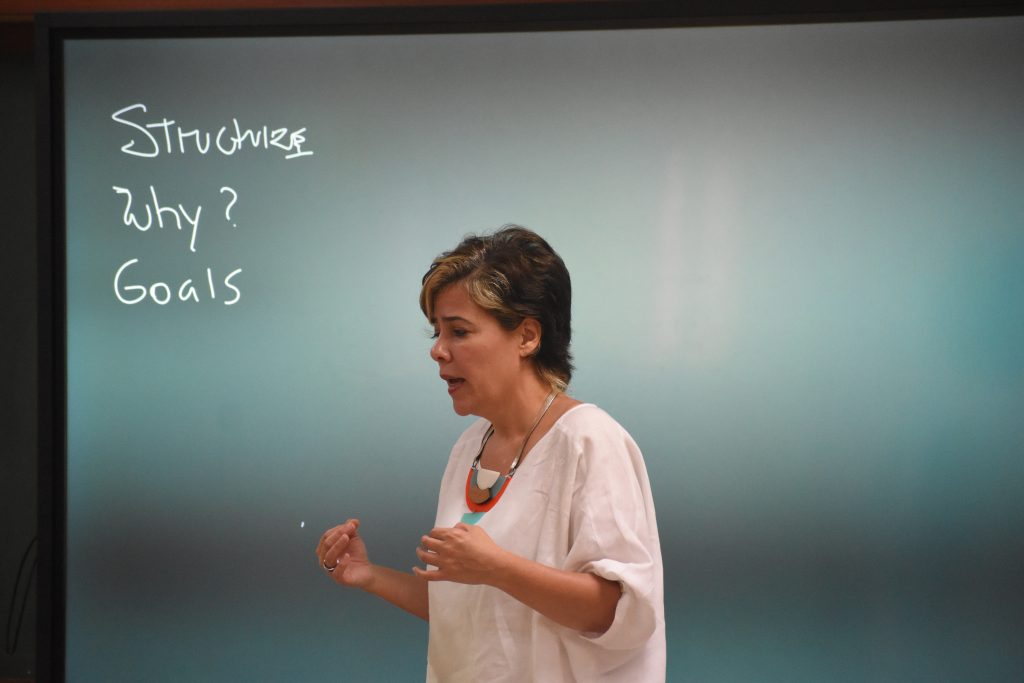
Sakshi Singh, an MTech student from IIT Jodhpur, found the focus on concepts in immunology through the lens of their original research work insightful. For instance, one question that sparked her curiosity as Siddharth opened the course, was the following: What happens to the 3D structure of proteins in a vacuum? Another interesting aspect was Carla’s innovative introduction of the immune system into 4Rs: Recognise (the pathogens or abnormal cells), Respond, Remember (immunological memory), and Repair (healing tissues post infection or injury). The discussions that followed were elaborations of the 4Rs, covering immune barriers, complement systems, pattern recognition receptors, history of vaccination, autoimmunity, neuroimmunology, cancer immunology, and more.
Some discussions that Sakshi found especially intriguing was how innate immune cells – originally thought not to have immunological memory – remember a previous attack because of modifications in their DNA without changes to the DNA sequence. Harini Subramaniam, a former MSc in Life Sciences student at IISc, who is currently a research associate in the Ghosh-Rothlin lab at Yale, says: “It was perfect for beginners, covering innate and adaptive immunity from conceptual, historical, evolutionary, and disease perspectives.”
Pritam Saha has a similar story to share. As an MSc in Medical Biotechnology student at the School of Tropical Medicine, Kolkata, Pritam was inspired by lectures given by IISc faculty member Dipankar Nandi at the course. A few months later, he joined Dipankar’s lab to do his MSc dissertation project and then became a project assistant after completing his Master’s degree. He now studies how immune cells respond to infection by a bacterium called Salmonella Typhimurium in mice, which could tell us more about how our body may respond to certain types of infections.
All students really appreciated the discussions on classical papers. One of them was on the discovery of a receptor on immune cells that recognises lipopolysaccharide, a component on the membrane of Gram-negative bacteria. K Hoshino and colleagues at Hyogo College of Medicine, Japan, published this study in The Journal of Immunology in 1999.
Another groundbreaking paper discussed was James P Allison’s work on the how immune response to cancer cells can be boosted by blocking a protein called CTLA-4, a receptor that inhibits T cell activation. This finding paved the way for the use of immune checkpoint inhibitors in cancer treatment, for which the scientist, who works at the MD Anderson Cancer Centre, USA, shared the Nobel Prize in Physiology or Medicine in 2018.
Carla and Lindsey Hughes, then a Postdoctoral Research Associate at Yale, also helped students analyse figures of research papers and judge if the authors had arrived at the right conclusions. “This skill has helped me in my research ever since,” Sakshi says.
In the course, teaching is combined with the Global ImmunoForums, and informal discussions with course faculty and peers, which were also quite valuable, participants say. For those who attended the first edition of the course, the group has now turned into a micro-community to post research updates, open academic positions and PhD vacancies, and share feedback and motivate each other. “Connecting with experienced faculty and researchers has opened up opportunities for potential collaborations and mentorship in the future,” Surjyapratap says.
When Carla and Sourav visited IISc again in October 2024 to speak at IMMUNOCON2024 – the 51st annual meeting of the Indian Immunology Society – they got the chance to meet some of the students from the first Global Immunocourse. “I see that now they have joined labs for their PhD that, in large part, they met through the course,” Carla says.

